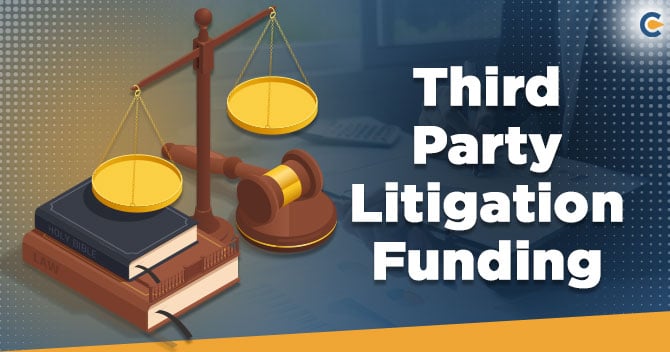Pre-litigation is a term used in the legal world to denote the phase just before a formal lawsuit or litigation is initiated. It refers to the process of attempting to settle disputes or grievances outside of court by means of negotiation, mediation, or conciliation. In India, pre-litigation is an important concept that has gained prominence in recent years as an alternative dispute resolution mechanism that aims to reduce the burden on the already overburdened judicial system.
Pre-Litigation: An Overview
Pre-litigation refers to a stage in Indian legal proceedings where parties attempt to resolve disputes without the need for formal court litigation. This can involve negotiation between the parties or mediation and arbitration with the assistance of a neutral third party.
During the pre-litigation stage, the parties involved in a dispute may communicate with one another or their attorneys to discuss their respective positions and try to reach a mutually agreed-upon resolution. This stage can be useful for avoiding the costs, time, and stress associated with formal legal proceedings.
In some cases, pre-litigation is also required by law as a mandatory step before filing a lawsuit. For example, in certain civil cases in India, parties are required to participate in mediation or conciliation before the case can proceed to trial.
Under Indian law, pre-litigation refers to the process of attempting to resolve disputes before they escalate into formal legal proceedings. As per the Code of Civil Procedure, pre-litigation procedures include sending a legal notice to the opposing party outlining the grievance, providing an opportunity to respond, and attempting to resolve the matter through informal communication. The objective of pre-litigation in Indian law is to promote amicable settlement of disputes by encouraging parties to arrive at mutually acceptable terms and avoid the time and expense associated with filing cases in court.
One of the key advantages of pre-litigation is that it offers a cost-effective and time-saving approach to resolving disputes. By avoiding the formal court process, parties can potentially save a lot of money and time that would have been spent on litigation. Pre-litigation also provides greater flexibility compared to traditional court proceedings and allows parties to have more control over the outcome of the dispute. In addition, pre-litigation can be less stressful for parties as it avoids the adversarial nature of court cases, which can be emotionally draining.
Furthermore, pre-litigation is viewed as a more efficient approach to dispute resolution in India due to the already overburdened judicial system. The Indian legal system has faced substantial criticism for its prolonged court proceedings, making it a challenge for people to access justice. Pre-litigation can reduce the burden on the courts by helping to resolve disputes before they reach the court system. Although it is not mandatory to attempt pre-litigation and parties can directly approach the court to file a case, it is a strongly encouraged process under Indian law.
Importance of Pre-Litigation in Indian Law
Pre-litigation is the process of resolving disputes before they escalate to court proceedings. The importance of pre-litigation in Indian law can be summarized as follows:
- Cost-effective
Pre-litigation resolution of disputes is more cost-effective than court proceedings. It saves time, money, and resources for both parties involved.
- Time-saving
Pre-litigation resolution avoids lengthy court proceedings that may take years to conclude.
- Confidentiality
Pre-litigation dispute resolution is often confidential, thereby protecting the parties’ privacy and reputation.
- Preserves Relationships
Pre-litigation resolution helps in preserving the relationships between the conflicting parties as it allows them to resolve the dispute amicably.
- Efficiency
Pre-litigation resolution avoids the overcrowding of the courts and utilises the resources of the legal system efficiently.
- Compliance
It helps to maintain compliance as the conflict is resolved point-to-point without any delay.
- Private
Pre-litigation proceedings are often private and confidential, which means that disputes can be kept out of the public eye. This can be particularly advantageous for companies who want to avoid adverse publicity or damage to their reputation.
- Greater control
Pre-litigation allows parties to maintain greater control over the dispute resolution process. They can choose the mediator or arbitrator, set the timeline and outcome, and negotiate on their own behalf.
- Prevents further litigation
Pre-litigation methods can help avoid further litigation in the future. Agreements reached through pre-litigation processes can be binding and prevent further disputes on the same issue.
- Flexibility
Pre-litigation methods are often more flexible than court proceedings, allowing for creative solutions to be reached that may not be possible in legal proceedings. Parties can tailor the outcome to their specific needs and interests.
Hence, Pre-litigation is an important step in Indian law as it provides an opportunity to parties to resolve their disputes out of court with speed and economy.
Legal Provisions and Acts Relating to Pre-Litigation in Indian Law
- Civil Procedure Code, 1908
The Civil Procedure Code governs the rules and procedures for pre-litigation in India. It mandates that before filing a civil suit, the plaintiff must serve a legal notice on the defendant stating the grounds and the amount claimed.
Section 80 of the Code requires that a notice be served on the defendant before initiating legal proceedings in certain types of cases. Section 89 of the Code provides for the use of alternative dispute resolution mechanisms, including mediation, arbitration, and conciliation.
- Limitation Act, 1963
The Limitation Act provides the time limit within which a legal notice needs to be served before filing a civil suit. It also specifies the period of time within which a suit must be filed.
- Consumer Protection Act, 2019
The Consumer Protection Act, of 1986, was repealed and replaced by the Consumer Protection Act in 2019. This act aims at protecting the interests of consumers and provides for the establishment of consumer dispute redressal agencies.
- Indian Arbitration and Conciliation Act, 1996
The Indian Arbitration and Conciliation Act, of 1996[1], recognizes the importance of pre-litigation by providing for several alternative dispute resolution mechanisms. The Act requires the parties to attempt to resolve their disputes first through negotiation, mediation, or conciliation before initiating arbitration proceedings.
It provides alternative dispute resolution mechanisms like arbitration and conciliation to resolve disputes outside of the courtroom.
- Negotiable Instruments Act, 1881
The Negotiable Instruments Act governs the law relating to negotiable instruments such as cheques, promissory notes, and bills of exchange. It provides for the procedure before filing a criminal complaint in cases of dishonor of cheques.
- Companies Act, 2013
The Companies Act governs the incorporation, management, and winding up of companies in India. It provides for the procedure to be followed before filing a case against a company.
- Motor Vehicles Act, 1988
The Motor Vehicles Act governs the law relating to motor vehicles in India. It provides for the procedure to be followed before filing a claim for compensation in case of accidents.
- Prevention of Money Laundering Act, 2002
The Prevention of Money Laundering Act (PMLA) provides for the prevention of money laundering and confiscation of proceeds of crime. It provides for the procedure to be followed before initiating legal proceedings under the act.
Pre-Litigation and Case Laws in India
Pre-litigation refers to the measures taken by parties to resolve their disputes before initiating legal action. In India, pre-litigation is becoming increasingly important as courts are overburdened and the justice delivery system is slow. The primary objective of pre-litigation is to promote efficient and early resolution of disputes, save time, and reduce the costs associated with litigation. Given the significance of pre-litigation, it becomes imperative to understand the legal implications of this practice.
- Salem Advocate Bar Association v. Union of India
In India, the concept of pre-litigation has been recognized in various judgments, statutes, and rules of procedure. Supreme Court of India in its landmark judgment in Salem Advocate Bar Association v. Union of India, has observed that “the adversarial system should not only be just but also appear to be just. It is, therefore, necessary that a dispute is resolved by an alternative dispute resolution mechanism” Consequently, the court passed orders to promote alternative dispute resolution mechanisms like arbitration, mediation, and conciliation.
- Afcons Infrastructure Limited v. Cherian Varkey Construction Company
In the case of Afcons Infrastructure Limited v. Cherian Varkey Construction Company, the Supreme Court reaffirmed the principle of pre-litigation and emphasized the importance of engaging in negotiation before initiating legal proceedings. The court observed that parties should try to settle disputes through negotiation, as litigation should be the last resort.
- Ashok Leyland Ltd. v. Tatra Trucks India Limited
In the case of Ashok Leyland Ltd. v. Tatra Trucks India Limited, the Supreme Court recognized that pre-litigation is not just an option but a necessity for parties to a dispute. The court directed the parties to initiate a dialogue and explore the possibility of an amicable settlement before filing a lawsuit.
- Krishan Kumar Vs State of Haryana (2010)
The Supreme Court of India emphasized on the importance of pre-litigation mediation and held that it is necessary to attempt mediation before initiating a suit as it can resolve the dispute amicably.
- State v. ALwarappa (2005)
In this case, the High Court of Karnataka held that it is mandatory to issue a legal notice before filing a suit for recovery of money or damages. Failure to issue a legal notice would make the suit invalid.
- Satish Kumar v. M/s Ashoka Marketing Ltd. (2010)
The Delhi High Court held that non-compliance with the pre-litigation notice under the Consumer Protection Act, 1986 can lead to dismissal of the complaint.
- Radheshyam v. Insurance Company Ltd. (2000)
The Supreme Court of India held that filing a pre-litigation claim before a consumer forum is not mandatory, but if the claim is filed, the forum has the jurisdiction to hear and decide the dispute.
- Delhi Development Authority v. M/s Bhola Nath (2011)
The Delhi High Court held that a pre-litigation notice must contain all the necessary information regarding the dispute, the parties involved, and the relief sought, failing which the notice shall be deemed to be invalid.
Thus, Pre-litigation has become an essential part of the legal system in India. The Indian courts have recognized the importance of pre-litigation to resolve disputes in a fair, efficient, and cost-effective manner. The Supreme Court and other judicial authorities have repeatedly emphasized that parties should attempt to resolve disputes through negotiation, mediation, and other alternative dispute resolution mechanisms. It is important for parties to understand the legal implications of pre-litigation and take measures to avoid lengthy and costly legal proceedings. Overall, pre-litigation provides an opportunity for parties to achieve a practical, expeditious, and just resolution of disputes.
Limitations of Pre-Litigation in Indian Law
Pre-litigation refers to the process of resolving a legal dispute before actually filing a formal lawsuit in court. While it is a beneficial process in many cases, it has its limitations in Indian law. Some of these limitations include:
- Lack of binding power
Pre-litigation negotiations or settlements are voluntary and not legally binding, which means that either party can choose to withdraw from the process at any time.
- The limited scope of disputes
Pre-litigation is effective only for disputes that involve a clear-cut issue such as debt recovery or property ownership but becomes challenging in case of complex issues.
- Inadequate representation
litigation engages mostly individual or small business engagements as it is less formal but lacks professional representation.
- Time-bound negotiation
The pre-litigation process has a limited time frame and if not resolved in that time, then the matter moves to the Court.
- High stress and emotions
As pre-litigation occurs before the start of a formal legal proceeding, it’s characterized by high stress and emotions that can limit the parties’ capacity to settle amicably.
Overall, while pre-litigation can be effective in resolving legal disputes without the need for a formal lawsuit in some cases, it is not always an effective solution for all kinds of disputes.
Conclusion
In conclusion, pre-litigation is an essential concept under Indian law, which aims to provide a cost-effective and time-saving approach to dispute resolution. It is an alternative dispute resolution mechanism that encourages parties to resolve their disputes outside of the court system. Pre-litigation can potentially reduce the burden on the judicial system by avoiding prolonged court proceedings, making the resolution process more efficient. Overall, pre-litigation is a beneficial tool for resolving disputes and ensures that justice is provided to people in a timely and cost-effective way. The pre-litigation procedures are an important aspect of dispute resolution as they can help in resolving disputes before they escalate into legal proceedings. It is essential to comply with the relevant laws and regulations regarding pre-litigation notices and attempts at mediation to avoid potential legal hurdles.
Read Our Article: Public Interest Litigation For An Individual











